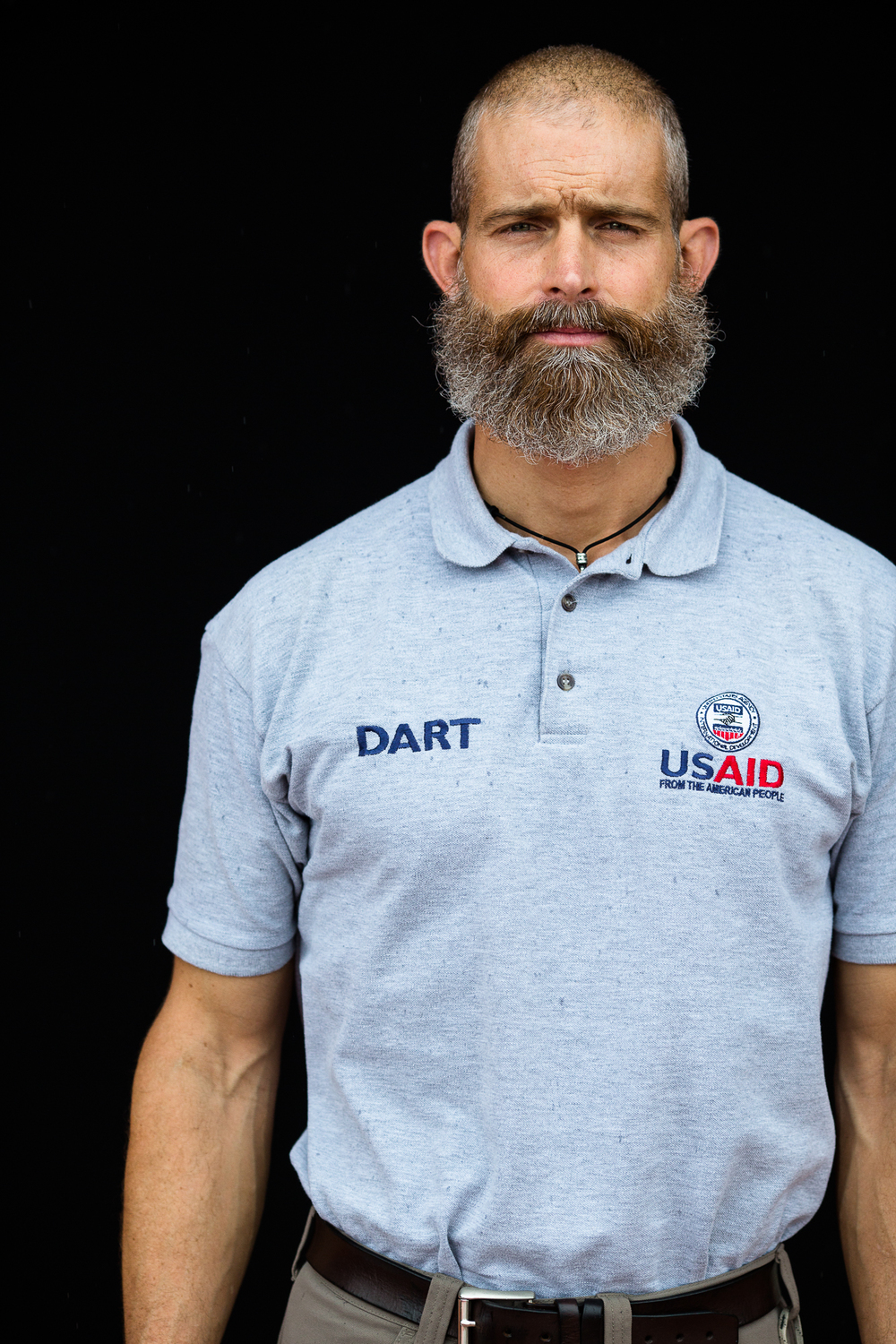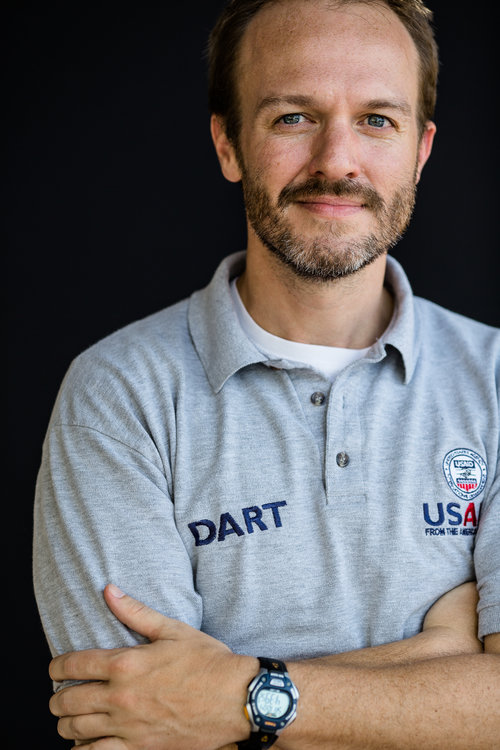This is the first blog post in the Daily Dispatches series in which photojournalist Morgana Wingard, who is on the ground with USAID staff in Liberia, is documenting the fight on Ebola. Her photo series and blogs from the team offer unique angles into the many facets of the Ebola story – from life inside a treatment center, to profiles of the health care workers battling Ebola from the front lines, to the many ways the epidemic is impacting the health, economy and future of the nation.
WRITING AND PHOTOGRAPHS BY MORGANA WINGARD
MONROVIA, Liberia—One of the saddest things about the Ebola outbreak in Liberia is the inability for many patients to get treatment. In Dolo Town recently, I watched a father carry his ailing son in a wheelbarrow to the clinic for treatment, but they did not have the capacity to help. He had been calling the government hotline for four days to no avail. A team of NGO workers proceeded to call the hotline again and a personal ambulance, but they also couldn’t get any help. All the treatment centers were full. In the end, the clinic sent him and his son home along with two other patients. Different versions of the same story have repeated across Monrovia for weeks. Liberians, trying to do the right thing, called the hotline and drove their loved ones to the hospital only to be denied entrance.
A father is devastated in Dolo Town after he was unable to get his son into an Ebola Treatment Unit (ETU) . It’s unclear whether he has Ebola as he can’t get to a facility for testing — an all too common problem. The U.S. Government is helping build and staff several new facilities in Liberia. Photo by Morgana Wingard
After hearing too many of these stories as I have documented the unfolding Ebola crisis over past weeks, the opening of another Ebola treatment unit (ETU) at Island Clinic in Monrovia was a huge relief. With the help of USAID, the Liberian Government and the WHO opened the 100-bed facility on Sunday, September 21 in the former MSF clinic. To power the treatment center, USAID provided two generators, amongst other supplies. These generators are vital to the functioning of the clinic by providing power for lights, pumps for water, and washing machines to clean scrubs worn by health care workers under their personal protective equipment (PPEs).
Miata, a nurse we met at Island Clinic, said all the health care workers ran from nearby Redemption Hospital, the largest government-run hospital in Liberia, at first. A doctor and several nurses on staff became infected with Ebola and died as the outbreak was beginning in Liberia. But when a team of Ugandan health care workers arrived in Liberia who had fought previous Ebola outbreaks in their own country, they called them together for a training workshop.
“That workshop inspired me to come back. If we don’t help the patients, who will?” Now, she is not afraid because she can cover herself with personal protective equipment before she enters the “hot zone” to provide food for patients fighting the Ebola virus. This new Island Clinic facility is helping. But many more beds and qualified health care workers are needed to meet the needs of growing numbers of patients.



















